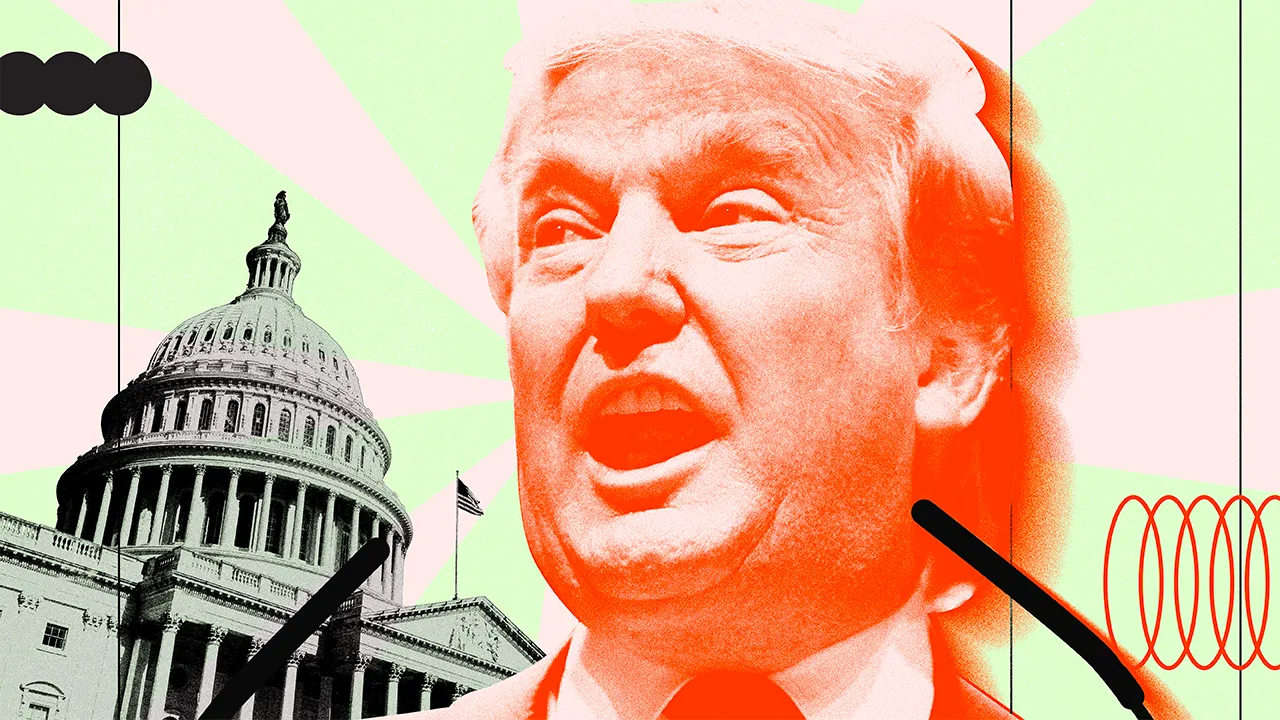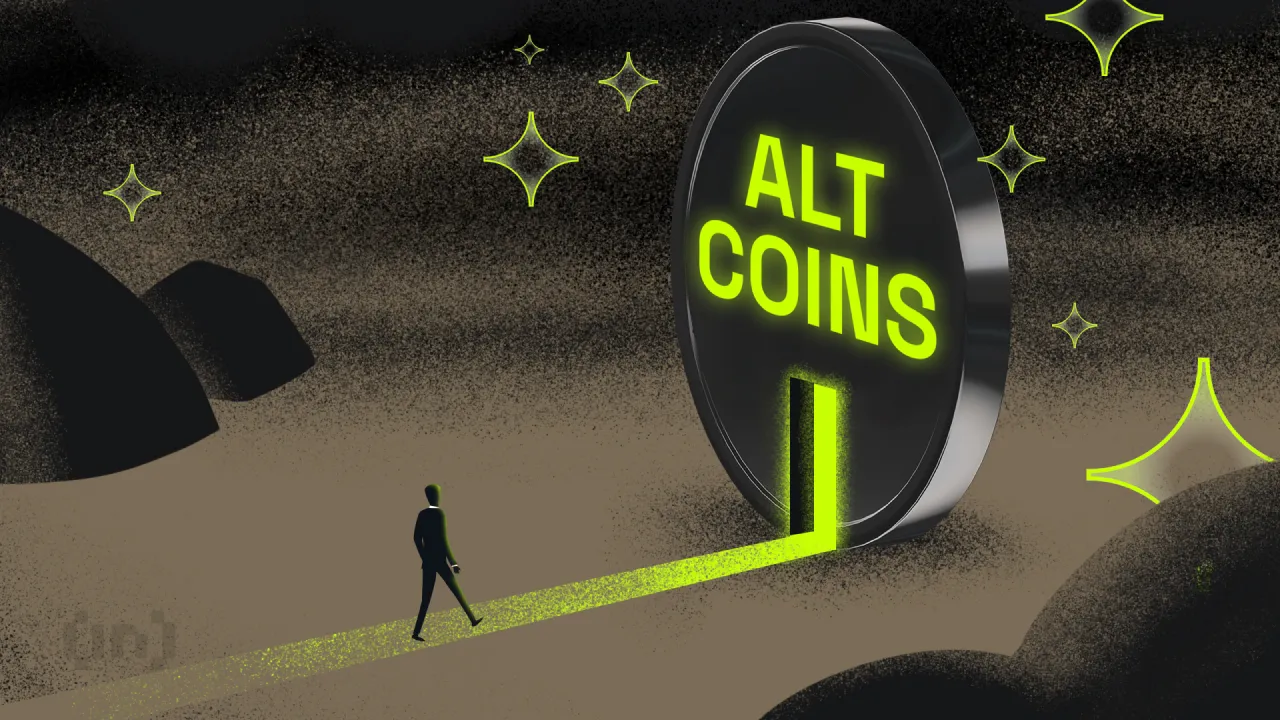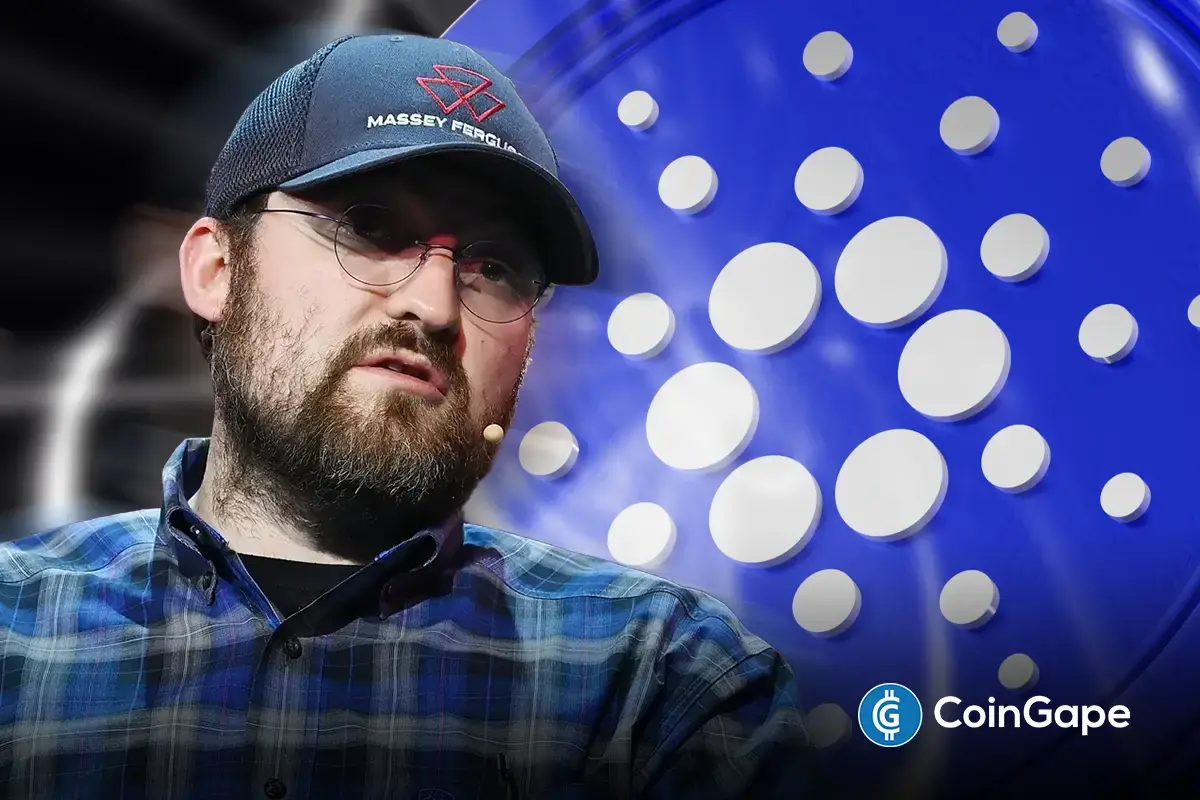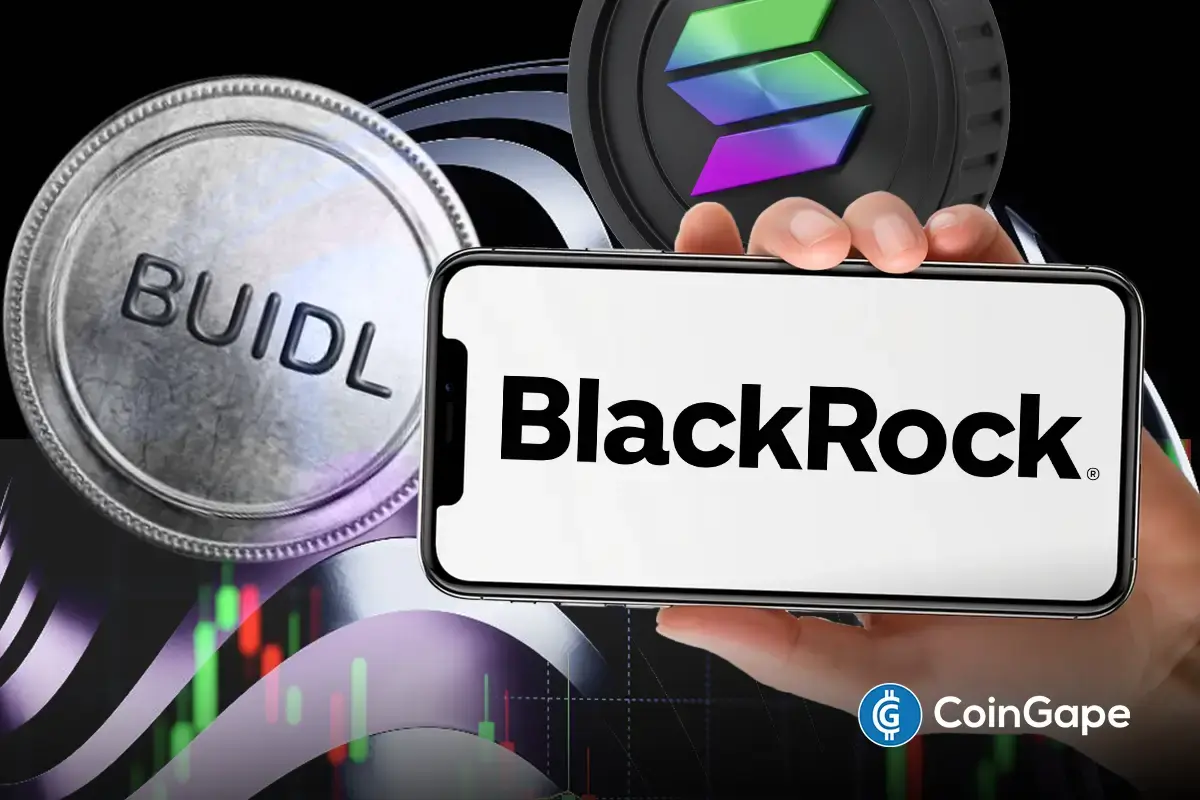Blockchain
Sony launches Soneium blockchain to drive mainstream web3 adoption


- Sony launches Soneium blockchain to drive mainstream web3 adoption.
- Soneium focuses on scalability, built on Optimism’s Superchain.
- Soneium rollout will be in a three-phase plan: onboarding developers, integrating Sony products, and expanding to enterprises.
Sony has officially entered the blockchain arena with the launch of its own network, Soneium, developed in collaboration with Singapore-based Startale Labs.
The initiative, unveiled on August 23, marks a significant step in Sony’s strategy to push web3 technology into the mainstream.
Introducing #Soneium by #Sony Block Solutions Labs building a public Ethereum layer 2 next-generation blockchain ecosystem designed to invoke emotion and empower creativity.
Soneium aims to connect Web3 with everyday internet services, making blockchain technology more… pic.twitter.com/I7zAIbB5Td
— Soneium 💿 (@soneium) August 23, 2024
The Soneium blockchain
Soneium is designed as a public Ethereum layer-2 network, built on Optimism’s Superchain. It aims to overcome some of the most pressing challenges hindering blockchain adoption, such as scalability and efficiency.
The infrastructure for Soneium has been supported by industry leaders, including Circle, Chainlink, Alchemy, Astar Network, and The Graph.
The blockchain will initially target web3 developers and enthusiasts. According to Sota Watanabe, CEO of Startale Labs, the first year will focus on onboarding these core users. In the subsequent year, Sony plans to integrate a range of its own products, such as Sony Music, Sony Pictures, and Sony Bank, into the platform.
By the third year, the company aims to open up Soneium to other enterprises and decentralized applications (dApps), creating a diverse ecosystem that encourages broader adoption.
Soneium testnet
In conjunction with the Soneium blockchain launch, Sony has rolled out a Soneium testnet in partnership with Astar Network. This testnet will provide developers with a fully-featured framework and built-in tools, allowing them to experiment and build applications ahead of the public release.
Astar’s zero-knowledge Ethereum virtual machine (zkEVM) will also be integrated with Soneium, enhancing its capabilities with features like liquidity provision and support for both fungible and non-fungible tokens (NFTs).
Sony wants to achieve internet-level scalability
Sony’s foray into blockchain is not without precedent. The company had previously acquired the Whalefin crypto exchange, which has since been rebranded as S.BLOX.
In 2018, Sony embarked on building a blockchain-enabled rights management system for digital content. In 2023, Sony Network Communications, a business division of The Sony Group, announced a strategic partnership with Astar Network to set up a web3 incubation program.
Sony’s ambitious plans for Soneium reflect its belief in blockchain as a transformative technology capable of decentralizing the internet and empowering users.
With a goal of achieving “internet-level scalability,” Sony is positioning Soneium as a key player in the future of web3.
This move by Sony underscores the growing momentum in the blockchain space, as major corporations increasingly explore and invest in decentralized technologies.
Blockchain
Trump Administration Push for Blockchain-Powered USAID Overhaul—Here’s What Could Change


A newly surfaced proposal concerning blockchain is now circulating within the US State Department hinting at a potential shift in how the United States Agency for International Development (USAID) operates.
Under a set of recommendations backed by Trump administration officials and linked to the Elon Musk-led DOGE government efficiency unit, the agency may begin utilizing blockchain technology to enhance transparency and security in foreign aid disbursement.
Adopting Blockchain in Foreign Aid Reform
According to a draft document obtained by Politico, blockchain integration is being considered as part of a broader effort to modernize and restructure USAID’s procurement processes.
The proposal outlines that all aid distributions could be tracked using blockchain to “ensure accountability,” “reduce inefficiencies,” and allow implementing partners “greater flexibility.”
Although the proposal doesn’t clarify whether a public, private, or hybrid blockchain system would be used, it emphasizes the benefits of “secure and traceable” fund flows for international aid programs.
Meanwhile, USAID, the US agency responsible for administering foreign development assistance, has faced criticism in recent years over perceived inefficiencies and spending priorities.
The proposal aligns with ongoing efforts from the Trump camp to realign foreign aid programs with national strategic interests. It describes current aid structures as too “expansive and disorganized,” urging a shift toward focused initiatives tied to measurable outcomes in regions critical to US interests. The document wrote:
A better approach would be to foster peace and stability in regions critical to U.S. interests, catalyze economic opportunities that support American businesses and consumers, and mitigate global threats such as pandemic diseases.
Potential Restructuring and Strategic Realignment
Alongside blockchain adoption, the document proposes renaming USAID to the “U.S. Agency for International Humanitarian Assistance (IHA)” and moving the agency under the direct control of the State Department.
Areas of focus would include global health, food security, and disaster response, with an emphasis on reducing politically oriented programs and streamlining operations.
The recommendations follow past efforts by the Trump administration to limit USAID funding and staff, moves that were met with legal pushback and public criticism.
While the document reflects a serious policy proposal, it does not yet represent formal government action. The proposal acknowledges that some aspects would require congressional approval and legislative changes.
It is also unclear whether Secretary of State Marco Rubio or other senior officials within the current administration have reviewed or approved the recommendations.
Still, the introduction of blockchain as a transparency mechanism signals a growing interest in applying emerging technologies to government operations—an area of focus that may continue regardless of future political leadership.
Featured image created with DALL-E, Chart from TradingView

Editorial Process for bitcoinist is centered on delivering thoroughly researched, accurate, and unbiased content. We uphold strict sourcing standards, and each page undergoes diligent review by our team of top technology experts and seasoned editors. This process ensures the integrity, relevance, and value of our content for our readers.
Blockchain
Ethena Labs and Securitize to launch Converge, a new blockchain for DeFi


- Ethena Labs and Securitize are joining forces to launch Converge, a new blockchain for decentralized finance and tokenized assets.
- Converge will be Ethereum Virtual Machine-compatible and serve both retail and institutional DeFi.
- ENA price rose 5% to change hands above $0.38 following the announcement
Ethena Labs and Securitize are teaming up on a venture that will see the crypto projects unveil Converge, a new blockchain built for tokenized assets and decentralized finance.
Announced on Mar. 17, Converge will be a custom-built, Ethereum-compatible blockchain. The developers envision a platform that will cater to both everyday investors and deep-pocketed institutional players.
Per a blog post introducing the new blockchain, the anticipated launch date is Q2 2025.
Ethena, Securitize unveil Converge
According to Ethena Labs, Converge is a blockchain platform designed to bridge the gap between traditional finance and DeFi.
The technology behind the EVM-compatible chain will allow users to leverage user-friendly decentralized applications for retail investors. Converge will also offer a suite of top tools aimed at institutional investors.
Both Ethena Labs and Securitize plan to tap into the new blockchain to advance the DeFi and asset tokenization ecosystem. In this case, the partnership will see Ethena bring its burgeoning DeFi to Converge.
Securitize will also revamp its traction in the real-world asset (RWA) tokenization space. With nearly $2 billion minted, Securitize stands out as one of the top platforms championing the growth of tokenized assets.
Converge’s unveiling will bring an EVM-compatible settlement layer, driving new adoption for stablecoins and tokenized assets.
“We’re developing Converge to fill a clear gap in the market as the go-to settlement layer for institutional-grade DeFi and tokenized assets,” Guy Young, founder of Ethena Labs, said in a statement.
According to Young, “storage and settlement of stablecoins and tokenized assets” is set to be a massive opportunity in the coming years.
Stablecoins, blockchains and exchanges are a “holy trinity of crypto protocols” the Ethena Labs founder posted on X.
Further comments came from Carlos Domingo, the co-founder and CEO of Securitize. He noted:
“By combining Ethena’s innovation in DeFi with Securitize’s leadership in tokenizing real-world assets, Converge sets a new standard for how institutions can confidently engage with on-chain financial markets.”
Converge’s initial launch partners
The two firms will look to advance Converge via key industry collaborations. Helping the cause are initial launch partners, including Pendle, Aave Labs (via its Horizon project), Morpho, Ethereal and Maple Finance.
Converge’s RWA traction will also benefit from custodial support from Anchorage, Copper, Fireblocks and Zodia among other institutional-grade custody providers.
Also key will be interoperability partners LayerZero and Wormhole. Meanwhile, Converge will tap into oracle support from Pyth Network and RedStone.
Furthermore, Converge will use Ethena’s native governance token ENA for staking and security. The latter will tap into a permissioned validator set. The USDe and USTb stablecoins will power network transactions as gas tokens.
The news saw the ENA token jump more than 5% to trade above $0.38.
Blockchain
Reddit’s Cofounder Ohanian Makes Bid For TikTok, Intends To Bring It Onchain

Reddit’s cofounder Alexis Ohanian is keen on acquiring Chinese social media platform TikTok with plans to bring it on-chain. While details of his plan are sparse, Ohanian seeks to use Web 3 to change the concept of social media ownership.
Bringing TikTok Onchain Will Change The Landscape For Creators, Says Reddit Co-founder
Ohanian has formally thrown his hat in the ring to acquire TikTok, joining a laundry list of individuals angling to purchase the social media platform. The Reddit cofounder joins Frank McCourt’s bid for TikTok, serving as a strategic adviser for Project Liberty.
“I’m officially now one of the people trying to buy TikTok US – and bring it on-chain,” wrote the Reddit cofounder.
Ohanian confirmed his interest via X (formerly Twitter) that he is keen on bringing TikTok on-chain after the purchase. For the serial entrepreneur, integrating Web 3 offerings into the app will change the concept of ownership on the embattled platform.
Without disclosing details, it appears that the users of the Ohanian-led TikTok will own their data while creators will own their audience
“We’re setting a new standard for what’s possible in digital communities,” said Ohanian. “A TikTok for the people, by the people. Let’s see if we can pull this off.”
How Will An On-chain TikTok Look Like?
Apart from changing the landscape for ownership, Ohanian’s post did not offer key details about TikTok’s future. However, pundits say the platform could feature on-chain monetization via micropayments in cryptocurrencies. Particularly, one of the assets tapped for the Crypto Strategic Reserve is expected to fill the role.
Another potential perk includes the integration of non-fungible tokens (NFTs) akin to Reddit’s experimentation with digital collectibles.
It is unclear which blockchain Ohanian will lean on in the push to bring TikTok on-chain. There are whispers of centralized Layer 2 blockchains but Reddit’s botched attempt could see a preference for Layer 1 chains.
However, Ohanian and Project Liberty members will have to achieve regulatory compliance in the quest to bring TikTok on-chain. Although the SEC is dismissing crypto lawsuits against exchanges, Ohanian has to proceed with caution.
Disclaimer: The presented content may include the personal opinion of the author and is subject to market condition. Do your market research before investing in cryptocurrencies. The author or the publication does not hold any responsibility for your personal financial loss.
-

 Market19 hours ago
Market19 hours agoBitcoin Bears Tighten Grip—Where’s the Next Support?
-

 Market18 hours ago
Market18 hours agoEthereum Price Weakens—Can Bulls Prevent a Major Breakdown?
-

 Altcoin23 hours ago
Altcoin23 hours agoCardano Price Eyes Massive Pump In May Following Cyclical Patern From 2024
-

 Market10 hours ago
Market10 hours agoTop Crypto Airdrops to Watch in the First Week of April
-

 Market5 hours ago
Market5 hours agoTrump Family Gets Most WLFI Revenue, Causing Corruption Fears
-

 Altcoin10 hours ago
Altcoin10 hours ago$33 Million Inflows Signal Market Bounce
-

 Market17 hours ago
Market17 hours agoXRP Price Fate Hangs on $2.00—Major Move Incoming?
-

 Ethereum9 hours ago
Ethereum9 hours agoEthereum To $20K? Investor Says Real-World Adoption Is The Key





















✓ Share: